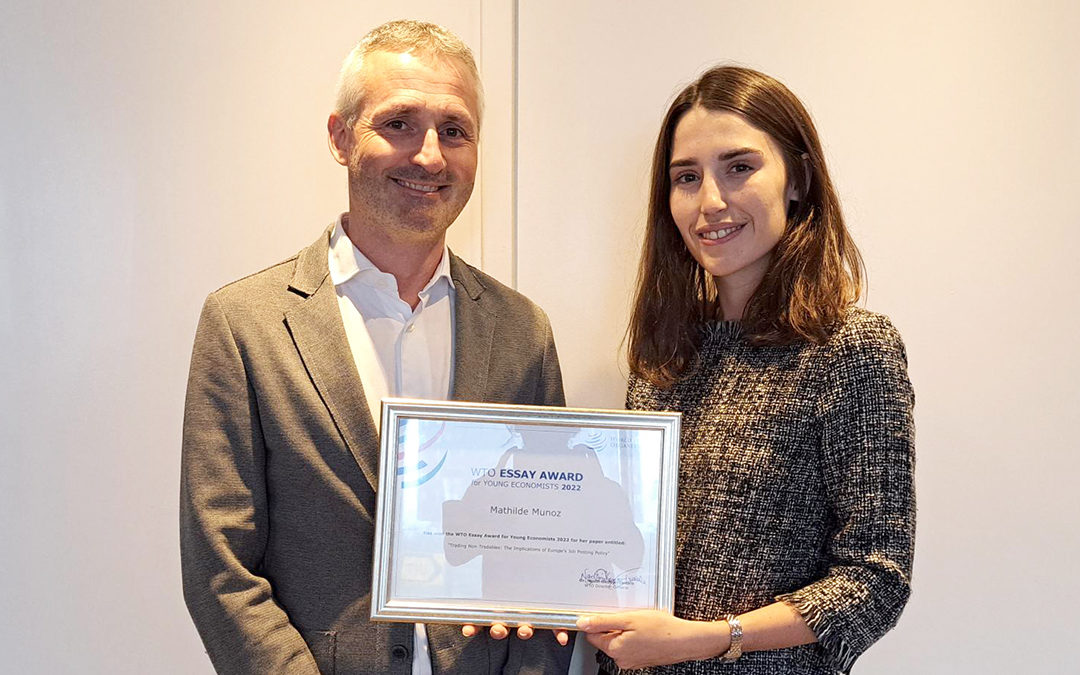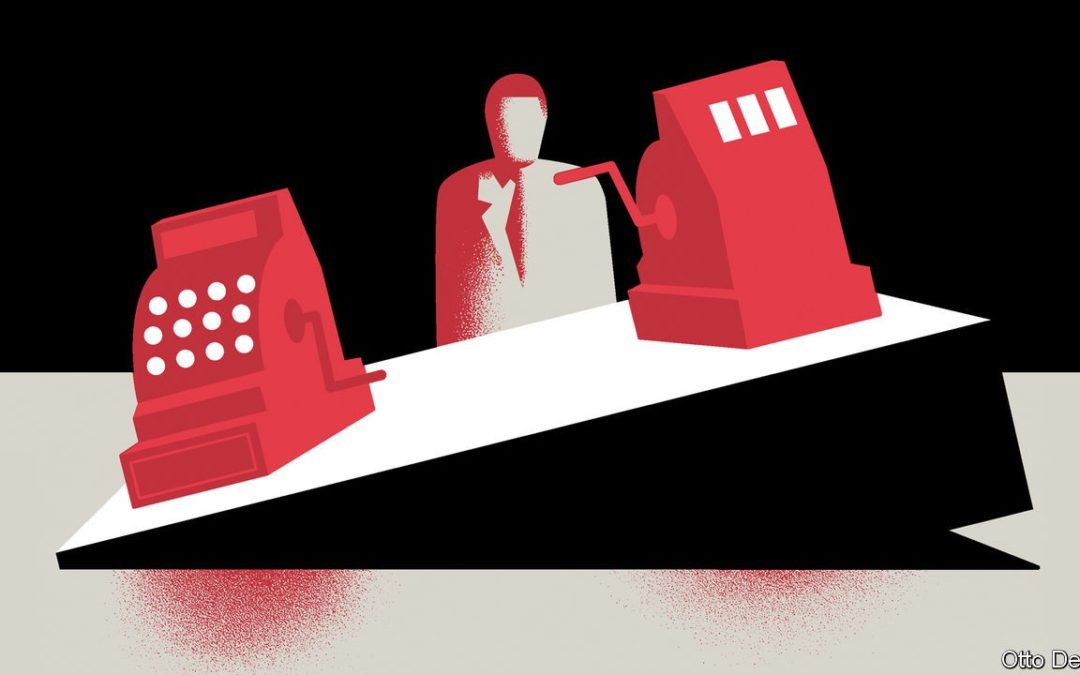
by ClausenCenter | Sep 9, 2022 | News, Research
The winner of the 2022 WTO Essay Award for Young Economists is Mathilde Muñoz of the James M. and Cathleen D. Stone Center on Wealth and Income Inequality at the University of California, Berkeley. Her paper, “Trading Non-Tradables: The Implications of Europe’s Job Posting Policy”, was ranked first by the Selection Panel. She was presented with her prize of CHF 5,000 at the annual meeting of the European Trade Study Group in Groningen (the Netherlands) on 8 September 2022. Muñoz is an affiliated faculty member with the Clausen Center.
> Read the full story

by ClausenCenter | Jan 10, 2022 | News, Pierre-Olivier Gourinchas
Today, the International Monetary Fund (IMF) announced its intention to appoint the Faculty director of UC Berkeley’s Clausen Center, Pierre-Olivier Gourinchas, as its new Economic Counsellor and Director of Research, starting January 24, 2022. Pierre-Olivier writes: “I am deeply honored to be appointed as the IMF’s Economic Counsellor. I look forward very much to working with my new IMF colleagues to navigate many of the important global economic issues of our times. I also want to express my deepest thanks to UC Berkeley for making it possible for me to serve in this position.” Please refer any media enquiries to
media@IMF.org.
>
Read the IMF’s press release
by ClausenCenter | Nov 16, 2020 | Events
Last spring, the COVID-19 pandemic led to an unprecedented shutdown of the global economy. Governments (mostly in advanced economies) responded with an array of programs, including increased unemployment benefits, stimulus payments, small business assistance loans, and broad monetary support. In spite of these unprecedented interventions, all financed by a rapid expansion of public debt, the economic outlook continues to be very uncertain 10 months into the pandemic.
What are the likely near- and long-term consequences of the pandemic for the global economy? Which populations have been most affected? Which industries are likely to recover, and which will not? How should we evaluate the success of economic measures taken by governments in the U.S. and around the world?
Co-sponsored by the Clausen Center for International Business and Policy — and presented as part of the Berkeley Haas “New Thinking in a Pandemic” series — this “Matrix on Point” brought together a panel of scholars to discuss the economic consequences of the COVID-19 pandemic.
> Watch the video

by ClausenCenter | Oct 30, 2020 | News, Pierre-Olivier Gourinchas
An analysis of 17 countries in Europe and Asia found that the COVID-19 crisis hit small- and medium-sized businesses hard: In the absence of government support, the 2020 bankruptcy rate would have almost doubled to 18% on average, with even higher rates in the hardest hit sectors and countries, researchers found.
Government interventions in most countries has cushioned some of the blow, and despite the severity of the shock, the banking sector showed resiliency. Banks did not appear to be significantly impacted by the rise in loan defaults, according to a recent National Bureau of Economic Research working paper co-authored by Clausen Center Faculty Director Pierre-Olivier Gourinchas.
> Read the full article

by ClausenCenter | Oct 13, 2020 | News, Pierre-Olivier Gourinchas
The Economist magazine highlights Clausen Center Faculty Director Pierre-Olivier Gourinchas’s work on trade imbalances and monetary policy. Read the article (subscription required).





